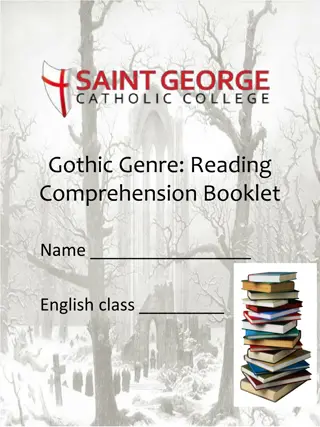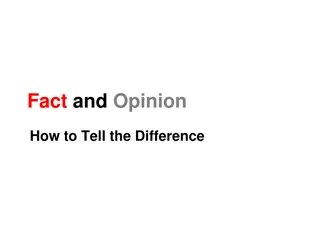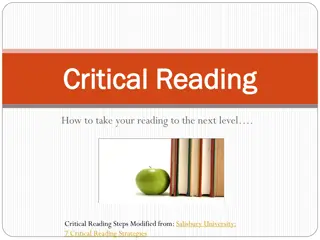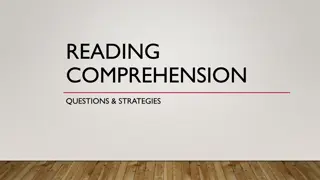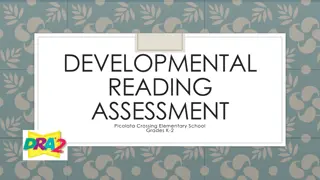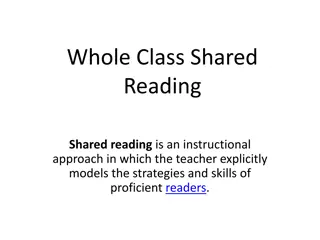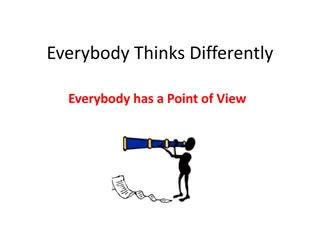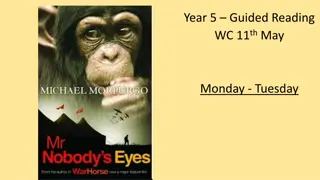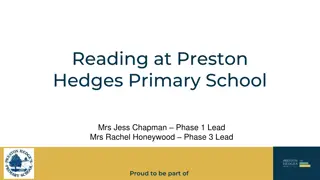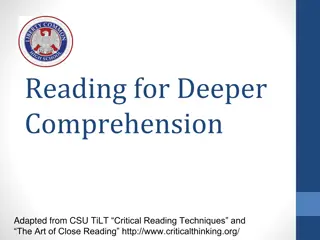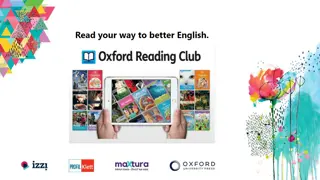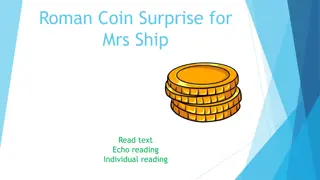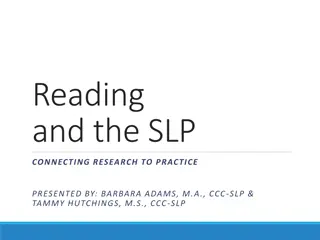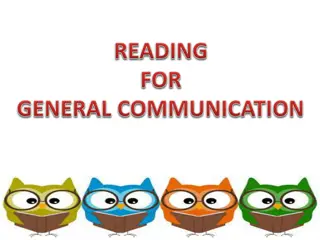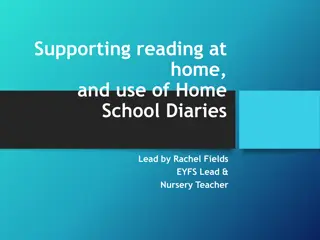Understanding Facts and Opinions in Reading Comprehension
Reading comprehension involves distinguishing between facts and opinions in a text. Facts can be objectively proven, while opinions are subjective reflections of personal feelings. Recognizing the difference is crucial for essay writing and critical analysis. By examining cues and asking specific questions, readers can differentiate between factual statements and subjective viewpoints.
Download Presentation

Please find below an Image/Link to download the presentation.
The content on the website is provided AS IS for your information and personal use only. It may not be sold, licensed, or shared on other websites without obtaining consent from the author. Download presentation by click this link. If you encounter any issues during the download, it is possible that the publisher has removed the file from their server.
E N D
Presentation Transcript
Identity Md. Iftekhar Alam B.A (Hons) M. A in English B.Ed Assistant Teacher (English) Karai Nurul Huda Kamil Madrasha, Joypurhat Subject: English Class: Nine Experence: Opinion Matters
Look at the following illustrations and discuss what they depict (facts). Afterwards, discuss what you would have done if you were present in those special moments. Later, share your responses with the class.
The fact: This illustration depicts the the mangrove forests. These mangrove forests are usually grown in saline, muddy and partially waterlogged areas. Due to the saline soil, the roots of these forest trees are quite scattered and cannot go deep into the soil. Indonesia, Brazil, Australia, and Niger account for 43% of the world's mangrove forests. Located in Bangladesh, the Sundarbans is the single largest mangrove forest in the world and is recognized by the world as a UNESCO World Heritage Site. My thoughts on the mangrove forest: Personally, I find these different and unique forests a rare creation of nature. We need to protect our Sundarbans by any means. Also, the mangrove forest inspires me to fight against all odds and make my own place in the world.
Facts and Opinions An important part of reading comprehension is determining a fact and an opinion in a text. The difference between facts and opinions is essential, especially when working to support an argument in an essay. Facts are statements that can be objectively proven, while opinions reflect personal and subjective feelings. For instance, when writing about a story someone might write something like: "The author did an awesome job writing about the main character." However, this statement would be an opinion because the idea that the author's job was "awesome" is subjective and may vary depending on the reader. When we read a text, it is not always easy to distinguish between facts and opinions. To identify them, we need to read the passage sentence by sentence and ask two questions: 1. Can the statement be proven to be true or false? 2. Does the statement express the author's personal beliefs, ideas, or emotions about the topic?
If the answer to the first question is "it cannot be proven," and the answer to the second is "it does," then the statement is an opinion. On the other hand, if the answer to the first question is "it can be proven," and the answer to the second is "it doesn't," then the statement is a fact. You can also look for certain cues to distinguish between facts and opinions in a text: Authors often use the following ways to write a fact: 1. The research confirms... 2. It is recently discovered that/ Recent findings reveal that.... 3. According to source
Now, read the note on 'Facts and Opinions' again and choose the suitable characteristics from the following list and arrange them in the two columns below. Afterwards, share your ideas.
Characteristics 1. Always true and can be proven. 2. An expression of belief about something. 3. Rely on observation or research. 4. Based on assumptions. 5. Has credible sources like research, newspaper etc. 6. The source of the information may be the teacher, mother etc. 7. To me, walking is the best way to visit a new place. 8. My mother has a driving licence. 9. Universal. 10. Varies from one person to the next. 11. Debateable. 12. Has the power to influence or persuade others. 13. According to 'The New Nation' the literacy rate........ 14. Supported by evidence. 15. Involves our physical senses, like hearing, seeing, smelling, touching, or tasting.






